From Ferris Bueller to Lady Bird – How The Quintessential Coming of Age Film Has Evolved Over the Last 40 Years
Growing up, I was subjected to almost every classic high school movie, even when I was still far from entering these green and white halls. Having parents that cherish art, history, and in this case, film exposed my brother and me to countless museums, historical landmarks, and iconic movies that drastically affected the way I view the world. John Hughes, Amy Heckerling, Cameron Crowe, Tina Fey, and Greta Gerwig are just a short list of screenwriters that have created films that have shaped not only my perspectives and ideas, but have also sculpted the history of mainstream movies for the last 40 years. The 1955 film, Rebel Without a Cause, is largely considered the first coming-of-age movie released. This romantic drama was a huge indicator of where the future of movies was headed and what would make audiences rush to theaters. The quintessential high school movie has evolved greatly over the last 4 decades, however, their nostalgic charm and relatability to the common American experience, makes them debatably the most beloved films throughout all generations.
The 1980’s is possibly the most crucial decade for this corner of movies. Not only did this decade produce countless trail-blazing horror, romance, and drama films, the number of highly quotable and achingly hilarious high school movies made during this time could beat the number of times Lili Taylor sings “Joe lies” in Say Anything. If you were to ask anyone over the age of about 35, they would chatter on about how Ferris Bueller was their hero, how they felt a personal tie to Anthony Michael Hall in The Breakfast Club, and whether they would have chosen Duckie or Blane for Molly Ringwald in Pretty in Pink. This golden age of the humorous, sometimes heartwarming, definitely-has-not-aged-well, teen comedy was all pioneered by The John Hughes. He is one of the most beloved directors of all time as his movies are definitely some of the most popular and reflective of the high school atmosphere across the country during this time. His filmography consists of classics such as Ferris Bueller’s Day Off (1986), The Breakfast Club (1985), Pretty in Pink (1986), and Sixteen Candles (1984). He has also made many successful movies outside of the high school bubble-like Planes, Trains, and Automobiles (1987), Home Alone (1990), and National Lampoon’s Vacation film series. These movies sparked a burgeoning plethora of archetypal high school movies. Audiences wanted to watch them, so studios wanted to produce them, and screenwriters wanted to create them.
My personal favorite of this decade, Ferris Bueller’s Day Off, centers around the fearless, larger-than-life, high school senior Ferris (Mathew Broderick) who takes a day off school with his best friend Cameron Fry (Alan Ruck) and his girlfriend Sloane Peterson (Mia Sara) by deceiving his parents into thinking he is sick. The three parade (figuratively and in Ferris’ case during one stand out scene, literally) around Chicago, going to the Sears Tower, a fancy lunch, the Art Institute of Chicago, the Chicago Board of Trade, and a Cubs game, all in time for Cameron to push his father’s red Ferrari out of his glass-walled garage to its tragic death. St. Pete High’s very own Mrs. Domanski, Mr. Tarrou, and former teacher Ms. Munkittrickk, all said that this was their favorite high school movie, which clearly speaks to its timeless sense and apparent longevity throughout the past 40 years. Without quoting yet another 80’s movie, the Latin phrase “carpe diem” perfectly reflects the moral of this film. “Life moves pretty fast. If you don’t stop and look around once in a while, you could miss it” is another.
Before Ferris came into the picture, The Breakfast Club (1985) made Hughes a star. While exploring the anxieties, insecurities, and mischievousness of the five main characters, Hughes paints common high school stereotypes with a more empathetic and understanding stroke than what had been done in films before. Confined together in a Saturday detention, the five students seem to have nothing in common, however as each of them reveals personal secrets and insecurities they haven’t shared with others, they form an indescribable bond and see each other in a more empathetic light. “Never judge a book by its cover” and themes of impending adulthood, weave through this film, making it one of the most thoughtful and emotionally meaningful of this decade. The audience leaves this movie understanding that “…a brain, an athlete, a basket case, a princess, and a criminal,” will never fully encapsulate the characters in this film or the people who resonate with these titles completely; there is always more underneath the surface.
While a majority of 80’s high school movies portray blatant racist, homophobic, misogynistic scenarios, the transition to the 90’s starts to shift the spotlight away from these storylines. For example, two standout films from this decade, Clueless (1995) and 10 Things I Hate About You (1999) center around self-assured women navigating high school and their unrealistic dating lives. They also involve one of the main characters striving to achieve one goal, such as paying a mysterious classmate to go out with a Sylvia-Plath-reading, Joan-Jett-listening feminist (10 Things I Hate About You), or a spoiled but very determined popular girl, ushering a new student under her wing (Clueless).
Written and directed by Amy Heckerling, the 1995 teen comedy Clueless, follows the innocent, persuasive, sometimes ditzy, high school sophomore, Cher Horowitz (Alicia Silverstone) as she attempts to brighten the lives of the people around her. At the start of the film, Cher, and her best friend Dionne (Stacey Dash), coax her debate teacher, Mr. Hall into dating Ms. Geist, another teacher at their school, in order to raise her grade. However, the film picks up when Tai, who recently has moved to the area, befriends Cher and Dionne who pamper her with a full makeover to try and win Elton over, one of the most popular guys at school. When this plan crashes, Cher must reflect on her motives of meddling with others’ lives (even if it is with good intentions). She decides to give herself a makeover, leading her to end up with Josh (Paul Rudd), her ex-stepbrother, at the close of this film. With two strong female leads, one of them being African American, Clueless strays from the other mainly male-focused storylines and perspectives that were so often conveyed in movies previously. Heckerling’s short, witty dialogue gave us countless quotable lines that are still repeated today like, “No, she’s a full-on Monet,” “Do you prefer fashion victim or ensemble-y challenged,” and of course, “As if!” Cher’s charm and thoughtfulness pops through the screen, even more than that yellow-plaid outfit that I and so many others dream of constantly.
The late-90’s had yet another romantic comedy to share, and not soon after did it become just as beloved as Clueless. 10 Things I Hate About You, starring Julia Stiles, the late Heath Ledger, Larisa Oleynik, and Joseph Gordon-Levitt follows fiery Kat Stratford (Stiles) and her naïve younger sister Bianca (Oleynik). Their obstetrician father, traumatized from having to deliver hundreds of babies, forbids them to date. Cameron James (Gordon-Levitt), a new student at Padua High School, becomes smitten with Bianca. Desperate to win her heart, he tutors her in French even though he knows very little of the language himself. Unfortunately, Bianca has eyes for the self-obsessed jock, Joey Donner, and begs her father to let her begin to date. Fed up with Bianca’s pleas and Kat’s attitude, their father adjusts the house rule to allow Bianca to date, but only when Kat has a boyfriend. Cameron, hearing about this shocking change, pays the rebellious and reclusive Patrick Verona to take Kat out. The film has countless charming moments (not just due to Ledger’s face), the most famous being a swoon-worthy gesture from Patrick that involves him serenading Kat with the grandiose classic, Can’t Take My Eyes Off of You by Frankie Valli, accompanied by the school marching band. There are countless more hilarious and heartwarming scenes that make you want to jump into this world with these colorful, sometimes imperfect characters. Even though Kat clearly does not recognize her privilege as a white woman in America, her points are not lost in the frillier aspects of the film and her character encouraged conversations around female representation and women’s issues in the rom-com genre of film. Kat may hate Patrick when he lies, how he cuts his hair, and his “big dumb combat boots,” but 10 Things I Hate About You can never be hated, “not even a little bit, not even at all”.
As the next millennium began, coming-of-age movies started to shift. No longer are they focused on one “good” character trying to either overcome an obstacle or trying to defeat a “villain,” instead, our protagonists become a little more complex. For example, in the 2004 hit comedy Mean Girls, none of the characters are ever completely innocent. Cady (Lindsay Lohan), a new student who has just moved to an Illinois suburb from Africa where this story is set, tricks her infamous new lunch buddy, Regina George (Rachel McAdams), into eating diet bars that make her gain weight, turns her best friends against her, and even kisses her boyfriend when they were still together. However, there are no words to describe the cunning, vengeful, Regina and the manipulative streak she possessed during this film. The character, Gretchen Wieners, blurts out others’ personal secrets to friends and is constantly unaware of the impact of the critical words she hurls at those around her. Karen Smith repeatedly gossips about her peers and is often clueless of her own ignorance.
Because Mean Girls is such a seminal film with an incredibly well-crafted commentary on high school in the 2000’s, its legacy will live on for many generations to come. Its intense depictions of how girls operate in high school is an extremely complex idea to portray in film, when on the surface it might not be taken as seriously, compared to other more “scholarly” films. The memorable dialogue and its iconic villainess are the key reasons why this movie was quoted on Tumblr, and now Twitter, thousands of times. Our very own Mrs. Scussel says that Mean Girls definitely “holds the most weight” over every film from this decade. “The limit does not exist” to the countless Regina analyses and the number of times the word “fetch” has been used in common conversation.
Now, we move on to the teenage films that have defined more recent years and have become some of my favorite movies of all time. Released in 2012, an adaptation of the bestselling novel, The Perks of Being a Wallflower, tells a powerful story of sheepish and anxious high school freshman, Charlie Kelmeckis (Logan Lerman), who is damaged by past events in his life, some even unidentifiable to him yet, as he befriends two seniors at his new school. The kind and sophisticated Sam Button (Emma Watson) and the charming and welcoming Patrick (Ezra Miller) take Charlie under their empathetic wing and together they form a loving and unwavering connection while experiencing a very raw version of high school. Sex, drugs, relationships, sexuality, and mental health are common themes that course through this film, making it an unfiltered view of what some high schoolers go through. Stephen Chbosky’s tender and nostalgic directorial style expertly fleshes out the incredibly vulnerable moments portrayed in this film. Chbosky’s keen eye for details enhances this cinematic experience and launches this film to a new level that many other indies cannot achieve. Watching this movie, you see parts of yourself reflected in not just Charlie, but in every carefully crafted, extremely honest character.
While all these films have moments of excellence, Lady Bird (2017) is a film that reaches the pinnacle of perfection for the coming-of-age genre. Written and directed by the one and only Greta Gerwig, Saorise Ronan, and her on-screen mother, Laurie Metcalf star in this film. Loosely based on Gerwig’s experience growing up in Sacramento, California, this movie centers around the extremely headstrong, idealistic, Christine “Ladybird” McPherson’s senior year of high school. Growing up in a suburb of Sacramento, attending a Catholic high school, and having a rocky family life, Lady Bird’s goal is to escape California. Feeling stifled in the place she has lived all her life, she says she wants to go to college at an “East Coast liberal arts [school]. Like Yale, but not Yale because [she] probably couldn’t get in”. Not wanting to upset her mother with her desire to live across the country, she asks her father to complete a financial-aid application for her dream schools. Once this secret gets out, Lady Bird’s mother is horrified by her daughter’s decision and refuses to negotiate or even speak to her.
While the film explores Lady Bird’s troubles in high school, the complex relationship between her mother and her creates a new standard of excellence for coming-of-age films. The scenes between Lady Bird and her mother accurately portray many mother-daughter relationships, specifically in high school. Their fiery and stubborn nature that can be easily turned off by the sight of a pink prom dress, leaves the audience unable to take their eyes off the screen. Ronan’s and Metcalf’s stunning performances and Gerwig’s genius directorial decisions, characterize this film beautifully and make it one of the best movies of the 2010’s. Navigating adolescence, fumbling romance, embarking on a journey of self-identity, and acknowledging the heartbreaking experience of moving on from what was, Lady Bird displays a unique, imperfect, and funny story that shows the complicated, but necessary process of forgiveness and moving on.
Clearly, the quintessential high school coming of age film has evolved drastically over the last 40 years and has shaped the course of mainstream movies forever. While there are hundreds of more well-respected, but agonizingly stiff movies, I believe the purpose of the film is to make viewers think and reflect on their experiences and attempt to empathize with other viewpoints. These iconic films had a massive impact on me and so many other movie fanatics and will continue to influence millions of other high schoolers for many more decades to come.


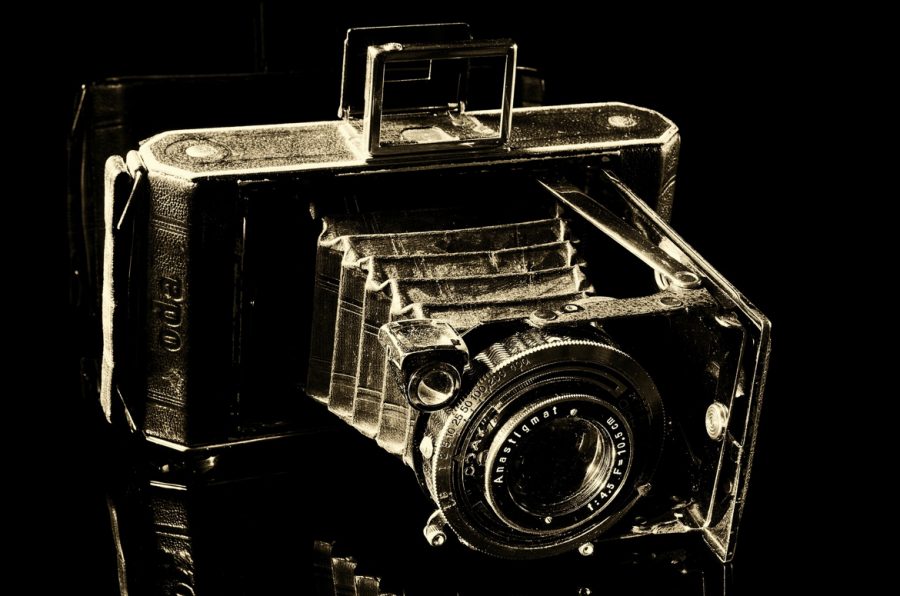






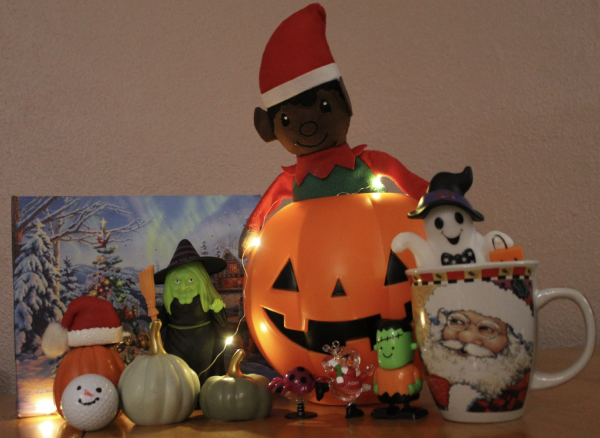
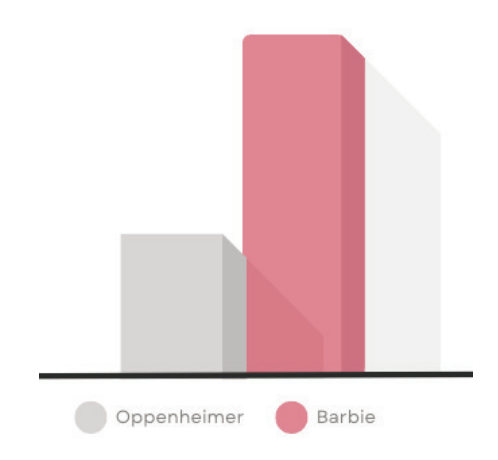


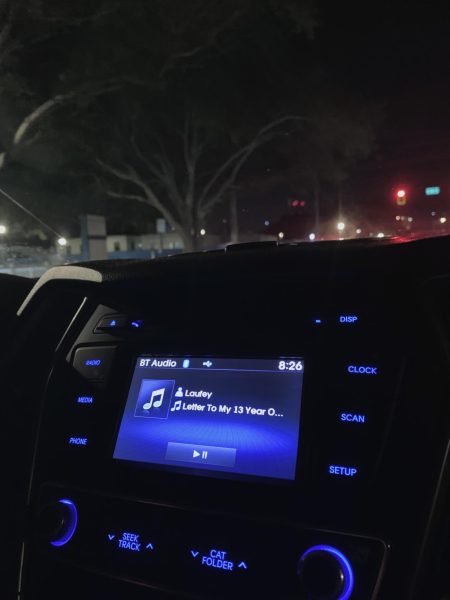
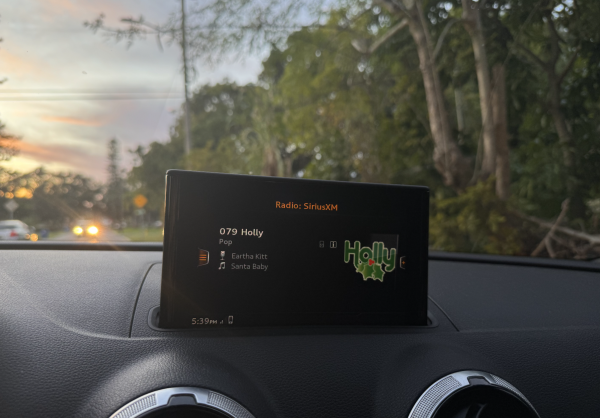
Michael Aguilar • Nov 16, 2021 at 9:33 am
Excellent! Booksmart and Eighth Grade are good ones too!
Ellie Miller • Dec 6, 2021 at 7:40 pm
Thank you! Yes, I love Booksmart as well!